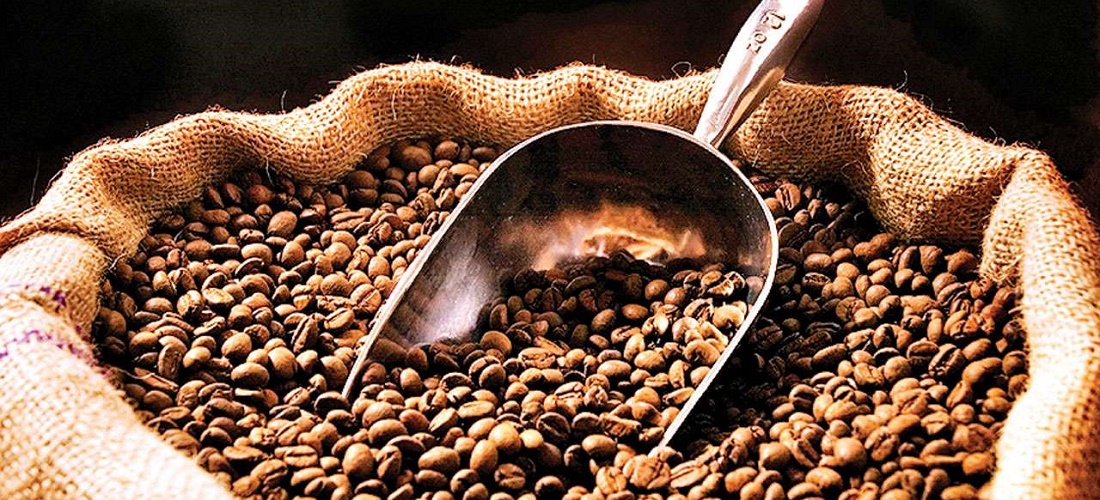
Brazil coffee exports totals 37.4m bags in calendar year
Dec, 11, 2019 Posted by Sylvia SchandertWeek 201951
In November, Brazil exported 3.1m bags of coffee, totaling 37.4m in the calendar year, from January to November, considering the sum of green, soluble, and roasted & ground coffee. The total volume represents a growth of 18.4% over the same period last year and stands out as the best export performance of the last five years for the period. The data are from Cecafé (Brazilian Coffee Exporters Council).
Foreign exchange revenue generated by shipments in the calendar year to date was US$4.7bn, up 2% from the same period in 2018.
Regarding varieties shipped in the calendar year, Arabica coffee represented 80.5% of the total exported volume, equivalent to 30.1m bags. Soluble coffee accounted for 9.8% of exports, with 3.7m bags exported, while robusta coffee accounted for 9.7%, with 3.6m bags.
In the last 12 months (from December 2018 to November 2019) Brazil maintained a good pace of shipments and recorded a volume of 41.4m bags.
“The good performance of coffee exports in November 2019 signals the solid participation and continuous demand of Brazilian coffee in the world consumption of the beverage. In the calendar year, from January to November, exports reached the historical milestone of 37.4m bags, already surpassing the full calendar year of 2015, when Brazil exported 37.02m bags.”
Record volumes shipped through November and positive expectations for December show that Brazil, through the efficiency and organization of the sector as well as the high quality and sustainability of the production chain, is prepared and structured to meet the growth of consumption and increase its participation of Brazilian coffee exports,” says Nelson Carvalhaes, President of Cecafé.
Crop Year 2019/20
In the first five months of Crop Year 2019/20 (Jul-Nov), as well as in the calendar year, Brazil recorded the best performance of the last five years in terms of the volume of coffee exported. In the period, 17m bags of coffee were shipped, growth of 0.2% over the same period last year.
Exports of arabica coffee in the period was 13.4m bags (a slight decrease of 1.2% compared to the same comparative base of 2018). Robusta coffee shipments totaled 1.9m (9.3% growth), while soluble exports were 1.7m (1.3% increase).
Top Destinations
The growth in exports to the main Brazilian coffee destinations in the calendar year is noteworthy, with growth of 20.9% compared to the same period last year. The top ten importers were, respectively: United States, which imported 7.2m bags of coffee (19.2% of the total shipped in the period); Germany, with 6.2m bags imported (16.5%); Italy, with 3.4m bags (9.1%); Japan, with 2.4m bags (6.4%); Belgium with 2.3m bags (6.2%), Turkey, with 1.1m bags (3%); Russian Federation, with 962,000 bags (2.6%); United Kingdom, with 883,100 bags (2.4%); Mexico, with 857,500 bags (2.3%); and Canada, with 813,900 bags (2.2%).
With the exception of the United Kingdom, all major Brazilian coffee consuming countries recorded in the calendar year an increase in Brazilian coffee imports when compared to the same period last year. In yet another month, Mexico showed strong relevance, with a 205% increase in imports, and already stands out among the 10 largest buyers of Brazilian coffee. Other destinations with the highest growth in Brazilian coffee consumption were the US (29.8% growth), Germany (25%), and Turkey (21.7%).
Exports by continent
Brazilian coffee shipments by continent also grew in almost all regions from January to November 2019. Coffee exports to Europe increased by 14.1% (equivalent to 19.4m bags). In North America, the increase was 34.7% (8.9m bags); in Asia, 13.6% (6.5m bags); South America, 8.4% (1.5m bags); Africa, 59.2% (614,000 bags); and Oceania, 6.7% (359,600 bags).
Also noteworthy in the period was the growth of Brazilian coffee exports to producing countries, which was +47.2% (1.9m bags); for BRICS, with +28.3% (1.3m bags); Eastern Europe, with +17.7% (1.6m bags); Middle East, with +12.9% (2.2m bags); and Arab Countries, with +12.1% (1.7m bags).
Differentiated Coffee
In the calendar year, Brazil exported 6.9m bags of differentiated coffees (which are coffees that have superior quality or some kind of certificate of sustainable practices). The volume represents 18.6% of the share of total coffee exported so far this year and a growth of 23.4% compared to the same period last year. Foreign exchange revenue was US$1.1bn in the period, representing 23.5% of the total revenue generated by Brazil from exports in the calendar year 2019.
The main destinations for differentiated coffees were, respectively: USA, which imported 1.7m bags (24.6% of the total volume shipped in the calendar year); Germany, with 867,200 bags (12.5% share); Japan, with 743,900 bags (10.7%); Italy, with 712,100 bags (10.2%); Belgium, with 592,700 bags (8.5%); Canada, with 270,400 bags (3.9%); United Kingdom, with 209,900 bags (3%); Sweden, with 193,900 bags (2.8%); Finland, with 153,400 bags (2.2%); and Spain, with 137,100 bags (2%).
Ports
The Port of Santos remains at the top of most exports in calendar year 2019, with 77.7% of the total volume exported from it (equivalent to 29.1m bags). In second place are the ports of Rio de Janeiro, with 12.7% of shipments (4.8m bags).
For more information, the full report on coffee exports in October 2019 is available on the Cecafé website: http://www.cecafe.com.br/.
The following chart, made from Datamar’s DataLiner data, shows Brazilian coffee exports since 2015:
Chart Source: DataLiner/Datamar
-
Other Logistics
Feb, 23, 2023
0
Argentina toll fee diverts demand to Port of Paranagua
-
Economy
Jun, 13, 2023
0
Exports from Uruguay drop 3.5% in the first quarter
-
Meat
Feb, 01, 2023
0
Beef: Argentina’s exports generate US$ 3,431 billion in 2022
-
Grains
Jul, 11, 2022
0
Vegetable oil association reduces Brazil soybean export forecast, ups crushing margins


